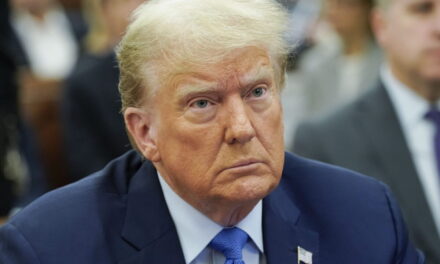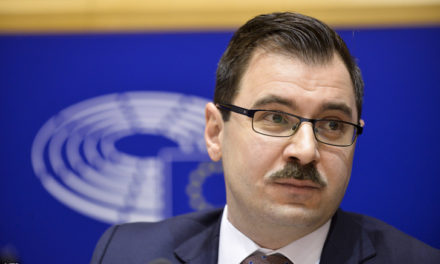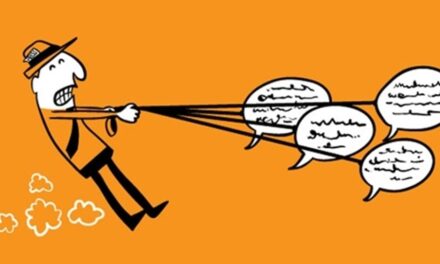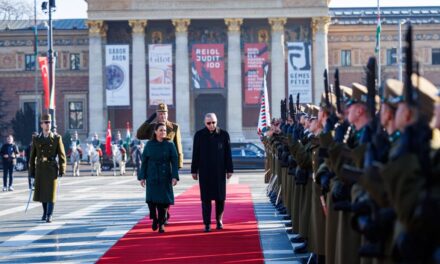We will not leave the country at the mercy of you! - said Péter Szijjártó in the interview, among other things.
As an almost veteran member of Fidesz and the government, in what state do you see the government and the right-wing?
It is a shame to deny that this year we were faced with challenges that we were not prepared for. These events were perceptibly bad for the right, as they cut into our fundamental questions of identity and gave space for our opponents to question our honest intentions that have guided us for the last fourteen years of government. However, I see that we have overcome these events and that we are committed enough to deal with the challenges.
This is proven by the fact that Fidesz-KDNP has never received as many votes in the European Parliament elections as it did this year, and since our EU membership, so many people have not voted for any party in Hungary.
I don't think we've talked about this enough - it's true, in politics and in general, that criticism gets much more space than good performance. This means that we have passed an election of historic importance, and now we are ready for the new tasks ahead of us, to continuously increase the performance of the Hungarian economy and return to where we were before the great crises. For the fourth year in a row, the country has to navigate in the midst of economic, security and health crises, which other governments in Europe have already fallen into - on the other hand, we, for example, won the biggest victory of all time in the 2022 parliamentary elections.
In any case, the political situation in Hungary has changed radically, now a new party most strongly articulates its own opinion towards the government, and in some cases social dissatisfaction. Will you miss the fact that Gyurcsányózáz has to be replaced by Hungarian paterzézáz?
I sense that this does not cause much trouble for our fighters, but seriously: there is obviously a new situation, a part of the Hungarian political elite has been replaced. Governments are usually replaced, but in our country, on the other hand, there is a strong attempt to replace the opposition, or at least to cause tectonic shifts in one actor and his circle. That's why heads can boil more on the opposition side than on the government side - of course we also have to react to the phenomenon, or at least we have to be aware that now the challenges are coming from a different direction, in a different style.
All in all, we are doing our job, and meanwhile something is stirring on the opposition side. The dog is barking, the caravan is moving.
According to opinion polls, Tisza voters are on average eleven years younger than Fidesz voters. Viktor Orbán admitted this year in Tusnádfürdő that the supply of the ruling party is not good, now it is necessary to recruit young people with a national spirit. Why is Fidesz not attractive to young people today, what should the party do?
I would split the question. We tend to take limited account of what pollsters think. The profession has been struggling with a credibility deficit since at least 2022, when it was proven that it cannot take all factors into account at the same time - then a close election result was predicted: a difference of two to three to four percent was forecast, and it ended up being twenty.
At the same time, the Prime Minister's words are completely correct. I was the president of Fidelitas between 2005 and 2009, and even before that we worked with András Gyürk, Antal Rogán, Zsolt Nyitrai, András Cser-Palkovics, and Róbert Gajda. I am proud of the fact that a generation grew out of the organization, which represented a reliable supply base for Fidesz, since quite a few of the team at the time stood for us at the governmental, parliamentary and local government levels - perhaps I can say without grandiosity.
However, as a former stakeholder, I can say: it was much easier to be Fidelitas president then than it is now. There are several reasons for this. On the one hand, if you think about it, a significant part of young people today live their lives on social media. On the other hand, between 2005 and 2009, Fidelitas was Facebook or Instagram itself, because in order for someone to make friends and be in a community, it was not enough to press the gadget - back then, you could only press the snake game and Tetris.
Back then, you could even bring your phone into school.
Indeed, and it is very fortunate that it is no longer the case, although I had fights at home because of this, I received criticism. I won't say I was convincing, but I persisted. (Laughs) I got the question, "Dad, you voted too, didn't you?", to which I of course replied that I strongly supported the decision. It is right that the children should pay more attention to their studies at school, because I can see exactly the distracting power of the mobile phone. Obviously, I can only approach the issue from the parent's point of view, education politicians can speak much more authentically about this.
Back then, the opportunities provided by social networking sites were provided by a youth organization. After all, you could gather with young people with whom you thought about the world more or less the same way, and you could spend your free time with them. It is clear that today a completely different technique of addressing young people must be used, which is more difficult. Today, for example, there are many more "competitors" for a child to play sports or to want to belong to the young political community than before, and politics also has a harder time reaching out to young people.
I don't know how many young supporters the Tisza Party has, because when I go with my sons to events where there are a lot of young people, based on the feedback I get, I can't complain - so be it. Undoubtedly, the next election depends to a large extent on young people, so we need to strengthen them there as well.
Let's move on to the Ministry of Foreign Affairs. As head of the ministry, he gave one of his first foreign interviews to the BBC's Hard Talk program at the beginning of the migration crisis, when Hungary was under great pressure. Based on his battles with numerous Western mediums, one gets the impression that he almost relishes these situations.
Rather, it is about finding a way to make a person even feel good in such a situation. I have a big advantage: I previously attended the school of politics alongside the Prime Minister. I worked alongside him as a spokesperson and then as Fidesz's communications director during a difficult period following the 2006 election for four years. I acquired the routine that is irreplaceable for such media appearances.
When I give an interview to a large international media outlet, I have to settle in myself right from the start that I know a thousand times more about what I'm going to talk about than the person who will aggressively criticize me. This is not pretentious, because I am the one who has lived here for almost forty-six years, and for him, our conversation on the given day is one of, say, ten interviews, for which he benevolently allocated, say, half an hour of preparation time.
The only question is whether you dare to show this in the given situation, or whether you give in to the pressure they put on you. If you go to the headquarters of CNN in New York, you will see pictures of the star hosts on giant posters everywhere, and signs proclaiming that there is no life without CNN. Then he goes up the escalator to the many floors, there are security guards everywhere, and the New York skyline lies before his feet. So it's all about the fact that you are just a tiny dot, and what an honor it is to be able to come here. Well, that's when you have to take a deep breath and say, they can't pressure you, you have to rule this out and be brave enough to assert your point of view.
The big breakthrough with my friend Richard Quest was when I confronted him: what he says is a lie. Which, of course, caused astonishment: where did this child come from, who dares to say this to the great Richard Quest live on CNN?
There was shouting and pointing, and it's a good thing that the table was long! (Laughs) The key question: if a person can sort this out within himself, if he is brave enough, then from then on, he "only" has to confront aggressiveness with sufficient force.
He also takes on the conflict with politicians who represent the countries of our federal system. They also used to complain about how much more friendly they are with, say, Eastern leaders.
Eastern colleagues, for example, do not usually start a hearing with the terrible state of our justice system, the terrible way we suppressed the media, or the low level of human rights. In contrast, Western colleagues always feel the urge to take out the textbook and read it to me in a teacher-student relationship. In such cases, I usually ask them to finish. For example, the Finnish colleague started to educate me about the situation of media freedom in Hungary, even though it is worth looking at the conditions of the concentrated Finnish media.
A similar case is when we are preached about the independence of the prosecutor's office and the judiciary, even though there are Western countries where the minister of justice holds the position of the chief prosecutor and can decide on the competences of the chief prosecutor himself.
Or they criticize the Hungarian electoral system, even though there are, say, a member state where a party that gets 14 percent has about seventy representatives, and a party that gets 15 percent only four. Marine Le Pen's defeat is announced in France, even though she won a million more votes than the runner-up. And in our neighbor, the head of state openly states that if a certain party wins, he will not give it the mandate to form a government. So don't take us for granted!
Yet it seems that we quarrel with our friends and do not ask for their advice, but with the politicians of countries that are outside the federal system - from China to Russia to even the Organization of Turkic States - representatives of the Hungarian government almost reach the point of friendship. Does it cover a kind of commitment?
If I didn't react to these insults and smiled and tolerated them talking about Hungary in this way, it is not certain that I would be considered a proper representative of Hungarian interests - neither by the voters nor by my fellow politicians. So whether someone from the East, the West, the North or the South insults us, we must respond. I don't sit down with any Western colleague like
"you, don't be angry, how are you? How is it that migrants keep neighborhoods in terror? How is it that the church became a department store? How is it that you want to hang the cross from the teachers' necks?".
I don't consider myself empowered to start talking to others about their domestic political issues, they feel compelled to push it. And I will always respond to that.
A comment regarding the Turkish Council. In 2010, when we won the election, we decided to open up to the countries of the Caucasus and Central Asia; one of the Prime Minister's first visits was to Azerbaijan. I remember the rude and impolite criticisms we received from our Western allies about how we imagine ourselves, that we are negotiating with dictators.
Today, Western politicians are shaking hands with each other in Baku, going there for their gas and for the chance to take a joint photo with President İlham Aliyev, and the German chancellor wants closer relations with Central Asia.
It is also worth recalling when, after his visit to Beijing, Viktor Orbán said that a dialogue with China should indeed be held in order to stabilize the international situation, and then he came under fire for this. For two and a half hours at the Council of Foreign Ministers, I have to listen to the fact that - to put it culturally - we are the breakers of European unity, in two weeks the Italian Prime Minister will leave, tell me that China is an indispensable dialogue partner for solving the world's difficult issues, and then suddenly everyone he says the same thing. There is such a double standard and they are trying to destabilize international politics in such a confusing and unpleasant way, such rude gestures are being made that we have to put on the gloves. There's no need to look for unnecessary conflict, but it doesn't work to hide under the table because of one criticism after another.
A lot has happened in the European Union in ten years, the government has had many conflicts. What is our perception now, our role in the community?
Amazing hypocrisy has captured the European Union, and a significant number of European politicians are suffering from this internally, but they cannot show it to the outside, and they do not have the power to change it. The attic is full of cases where, before a debate in the Council of Foreign Ministers, colleagues come to me to say
"Péter, then we really hope that you will be brave, say it, veto it, go against it". To which I say: "Of course, I'll say it, I'll veto it, but could you possibly help?" Then comes the answer that it is not possible, because the coalition partners, the NGOs, and the media are there. Well, my snowshoes are full of this!
When it's just the two of us, they tell us how right we are, but it was nice to listen to them last time too, my interview was good, but they still read what the bureaucrats prepared for them in public, without looking up from the paper. This can be terrifying.
Another typical phenomenon is that when twenty-seven European Union foreign ministers sit down, twenty or twenty-two are probably busy with their gadgets. They are constantly pressing mobile phones and laptops, writing Facebook and X posts. Poor people are completely bound by whose reaction to the post, what to write, what not to write. I don't even bring a phone into such meetings, because I sit there so that if there is a dispute, I can sort it out and try to reason.
Back to how they relate to us:
they hit us on the surface, a significant part of them thinks deep down that at least someone is telling the truth.
Now a new situation has arisen, here are the Slovaks, who, especially since the assassination of Prime Minister Robert Fico, are so tough on things that they are competitive with us. It is often enough to wait for the Slovak colleague and join.
Wouldn't it sometimes be more beneficial for us to move towards a common position due to the assertion of interests within the union? For example, Austria is connected to Russian energy carriers and apparently does not get shamed, or there are the Italians, who juggle with Chinese relations and do not receive such fierce criticism because they are a bit more tactical.
Indeed, but if one is a member of the G7 and one of the richest countries in Europe, one can afford not to do what one says and not say what one does. We are a Central European, medium-sized country, not one of the richest, so we cannot do the same. So far, however, I have not sensed such a big loss from the fact that we pursue an honest policy - of course, there are those who would say that how many tens of billions of euros the European Union does not give. But he wouldn't give it away even if we were hypocrites, because there has been a clear conceptual difference between Brussels and Hungary for fourteen years:
we don't want migration, we don't want gender propaganda, the father is a man, the mother is a woman, we don't want war, we are not willing to bow to the international liberal mainstream, we are not willing to expose the country to external forces.
The country has benefited a lot from our honest and clear foreign policy so far. Today, our country is one of the three countries in the world where the three largest German car manufacturing companies operate. And we are the only country where five of the ten largest battery manufacturers in the world are located there. Year after year, we set investment records, employment increases; after the covid epidemic, more people worked for us than before, and investments came to Hungary even during the epidemic. It was a long time ago, but it's worth recalling: they announced with great fanfare that the vaccines would come from joint European procurement, while tens of thousands of people died every day.
Commission President Ursula von der Leyen allegedly ordered a vaccine via SMS, which then did not arrive on time.
The fact that we were able to vaccinate faster in Hungary during the pandemic than any other European country was because the door was also open to the east. In addition, the country's supply of natural gas, petroleum and nuclear fuel is on a solid foundation. This is all due to the fact that we have a normal relationship with the world's leading actors in all directions.
If it's a normal relationship: Viktor Orbán's peace mission, which for now is just a mission, had a great impact, we are not yet at peace. Is this project worth it so that Hungary is even more criticized for politicizing in accordance with Russian interests when the West should be united?
On the one hand, in the case of a Christian country, it is difficult to imagine any position other than that the most important thing is to save human lives. We were directly confronted with the humanitarian effects of the war, 1.4 million refugees arrived, children of refugee families are still studying in hundreds of schools, we gave almost 15 thousand children the opportunity to camp. The killing and suffering must end! There are those who believe that this can be done on the battlefield, while others - including us - believe that it can be done at the negotiating table. A thousand days have slowly passed since the outbreak of the war, which is long enough to draw certain conclusions.
During this time, the Westerners brought arms to the Ukrainian front in huge, unfathomable amounts worth tens of billions of euros. I ask: has anyone experienced a positive change from this?
They used to say that if the Ukrainians had not received weapons, they would have been in an even worse situation - so at least they could resist.
But are they in a good position? Many hundreds of thousands of people died, the Ukrainian foreign minister told me that seven and a half million people left the country. A significant part of Ukraine is in ruins. People kill each other, suffer, end up in prisoner of war camps, families are destroyed. It was possible to reach this point with tens of billions of euros worth of weapons. When we talked about the first sanctions package in February-March 2022, I suggested to my colleagues that we should also agree on what the goal is, because only then can we say what the right tool is. The goal, they said, was to bring the Russians to their knees and that would be the end of the war. Since then, we have not forced the Russians to their knees, nor have we come any closer to peace. Russia occupies a significant part of the territory of Ukraine, 28 percent, and people die every day. So it didn't work.
But something had to be done.
Good, but let's not forget that an agreement was almost reached at the peace talks at the end of March, beginning of April 2022. I saw the document that was almost signed, and which, according to the realities of the time, would have ended the war. What happened?
The Westerners came and told the Ukrainians to continue fighting, no agreement should be accepted. We got here. There are different ideas, and there is also a China-Brazil peace plan, which consists of six points, all six points can be supported with the best of heart. This is about there being no blocs, the opposing parties not provoking each other, an end to human suffering, nuclear power plants not being attacked, and weapons of mass destruction not being used. All points can be supported wholeheartedly, which is why we participated last week in New York at the inaugural meeting of the Friends of Peace group, which was organized by the Chinese and the Brazilians. Three European countries were invited: France, Switzerland and Hungary. It is not yet known what the venue will be, but the most important thing is that the peace talks only make sense if both warring parties participate.
The US presidential election is coming soon. How risky is it that the Hungarian government put everything on the same page with the support of Donald Trump? What will Hungarian-American relations be like if Kamala Harris wins?
Let's find out what the government did! We never question the decision of the voters of another country, the democratic nature of a given electoral system, and we try to work as best as possible with those who can hold the voters' trust. Whether the other party reflects this intention or has other goals is another matter. On the other hand, politics is a genre based on experience, and we have plenty of that in governance. We have governed with a Democratic administration in the United States under Barack Obama and now with Joe Biden, and also with a Republican administration with President Donald Trump at the helm. The difference can be played out, not in how much we want a good relationship, but in what the intention is from the other side. Because we strove for good Hungarian-American relations even under democratic administrations, since we were obviously interested in being on good terms with the world's number one superpower.
If we remember correctly, there were expectations from the beginning.
When I went to Washington for the first time in the fall of 2014, they made it clear: the Hungarian government is not welcome at the highest level. I was greeted by the Assistant Secretary of State for Foreign Affairs, Victoria Nuland, and after sitting me down on a couch, she handed me a two-page document that spelled out exactly what their expectations were.
It featured, among other things, how to change the constitution, the regulations on the media or the churches. He then made it clear that only if all of this can be implemented can we talk about a political relationship system at all. If not, then no.
I immediately indicated that the Hungarian parliament decides on the laws - accordingly, bilateral relations did not turn out well.
We remember the excellent mission of Ambassador André Goodfriend, the large demonstrations, the banning scandal. And since the Biden administration has been in office, they have made the visa system more difficult after we did not hand over the list of names of Hungarians across the border, and finally the agreement on the avoidance of double taxation was canceled because we were not willing to go into the premature introduction of the global minimum tax, as we did not want to raise taxes in Hungary. In addition, tens of millions of dollars are coming from overseas to opposition parties and media opposing the government. This is not a friendly attitude.
By contrast, when Trump was in office, relations were characterized by mutual respect. The Prime Minister was invited to the White House, I was at the State Department in Washington, US Secretary of State Mike Pompeo visited us. We think the same way about the answers to the toughest challenges facing the world:
we pull in the same direction when it comes to migration, family, war or peace. This would allow for a much better connection system.
We also look at the American presidential election from a Hungarian perspective. In other words, if the question is what would be better for the Hungarian-American relations system, the security of Central Europe or the achievement of peace, the obvious answer is Donald Trump's victory. In addition, there was order in the world during Trump's presidency, now it is not.
Let's not leave out Győr, where his political career started. He recently said that the city is a success story, which for the government is only true in an economic sense, since Fidesz has not had very good years there. What is the situation of the right wing in the city now?
If you come from somewhere, you have to be careful not to think too much about what is happening there, because it is not certain that you have all the necessary information. On the other hand, it's better not to point back, that's not right. However, I feel some personal interest in things going well in Győr. On the one hand, I started from there, and on the other hand, our previous mayor,
I can thank András Csaba Dézsi for getting me into politics at all. If he didn't embrace me, a nineteen-year-old, first-year economics student who was interested in politics and had just graduated from the Benedictine high school, then I wouldn't be a municipal representative in 1998, and I wouldn't be sitting here now. I also met the Prime Minister through him.
I will never deny that, no matter how much criticism there is about it. This year's election results in Győr were undoubtedly a disappointment, and political scientists will be able to analyze them, because it is not clear that a candidate won the mayoral election who did not even win his individual district, while Fidesz easily won in fourteen out of fifteen constituencies. In other words, we have a stable, almost two-thirds majority in the board, but we lost the mayor's seat.
You have to politicize skillfully in the next period, exclusively for the benefit of the city. I still believe that Győr is a success story, and no one has the right to destroy it. We need unity now, we shouldn't be busy cursing each other. Anyway, a significant part of our representatives also came from Fidelitas, I hope that the kind of loyalty and teamwork that we practiced together will be brought to the future as well. They won't be bored.
Source and featured image: Mandiner / Árpád Földházi













